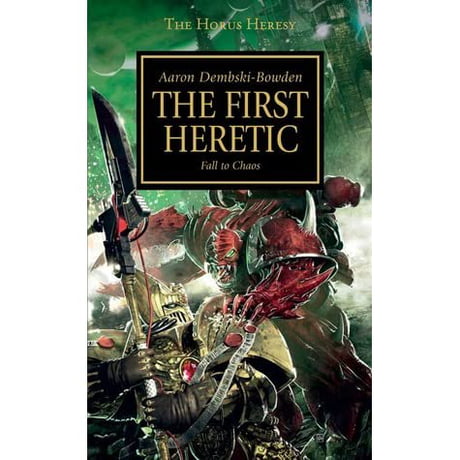

He’s also clueless about a lot of essentials about how the world works, despite his suspicions that the Emperor is (and isn’t). Horus is arrogant, proud, and seems to be a skilled politician and strategist, yet he is really scared of acting alone. I believe he’ll appeal to grimdark enthusiasts since he’s a moral but tarnished figure.Ī lot of the book is setting the stage for the series’ subsequent chapters, but you can pretty well foresee how a lot of it will play out. He’s as far up as the Primarchs are above the Space Marines, yet he doesn’t look down on them. I appreciated his interactions with the average human people, who may or may not be simple mortals. He’s also never met Chaos before, so when he eventually encounters his first daemon, he’s taken aback by what he sees. He’s in an excellent position to consider the morality of his actions since he grew up in a culture where indoctrination is widespread but not all-encompassing. Garviel is one of my all-time favourite Warhammer 40K characters, and he’s definitely one of the greatest in the setting, as much as I enjoy Horus. Finally, the Imperium’s profound ignorance of the former, as well as its fervent loathing of the latter, contribute to a completely pointless conflict. It’s a Star Trek-style paradise that’s learnt about Chaos’s perils and formed friendships with species like the Eldar. The Imperium’s discovery of the Interex, a fascinating empire that depicts what the human race may have been like if it wasn’t ruled by an insane bloody-handed dictator who is (sadly) the brightest man in the world, exemplifies this point. Many people imagined that the Emperor’s return would mark the beginning of humanity’s paradise, but it’s evident from this book that he was closer to Stalin than Jesus (despite some hints in-canon of being the latter). It is also a conquest-driven Empire that demolishes both tyrannies and utopias.

Because religion is punishable by death, people have started to worship the Emperor instead. Far from being a Golden Age, it is already a fascist dictatorship that has replaced all other ideas with mindless obedience.

Garviel slowly but steadily begins to perceive the Imperium’s decay. Garviel has more sympathy than the average Space Marine, if he has any at all, and voices his reservations when the local (fake) Emperor of Mankind’s armies are killed before the planet is subjugated. Garviel Loken, a freshly promoted “from the ranks” Space Marine (which is a bit of a lie since they’re all tremendously strong super-soldiers imbued with the Emperor’s gene seed), is the true protagonist of the series. Horus’ legion of Space Marines, the Lunar Wolves, are thrilled, but Horus himself is worried by the Emperor’s seeming abandonment of them. The Emperor has stepped down as Warmaster for unexplained reasons, and his favourite son/clone Horus Lupercal has been selected as his replacement.

The concept is that the Emperor of Mankind has started the Great Crusade to reclaim all human space, from which most of them have wandered into the unknown.
#Horus rising pdf free series#
Many of the previous books in the series have a dizzying aspect to them, but none of it hinders the tale here. This is not the review for you if you don’t like effusive praise. Horus Rising, written by Dan Abnett, is one of my all-time favourite novels in the Warhammer 40K world (technically Warhammer 30K right now). As the Star Wars Prequels taught us, all journeys begin with a first step, and I was one of the first to buy a copy of Horus Rising (the first book in the series as well as its title) when it was released.


 0 kommentar(er)
0 kommentar(er)
